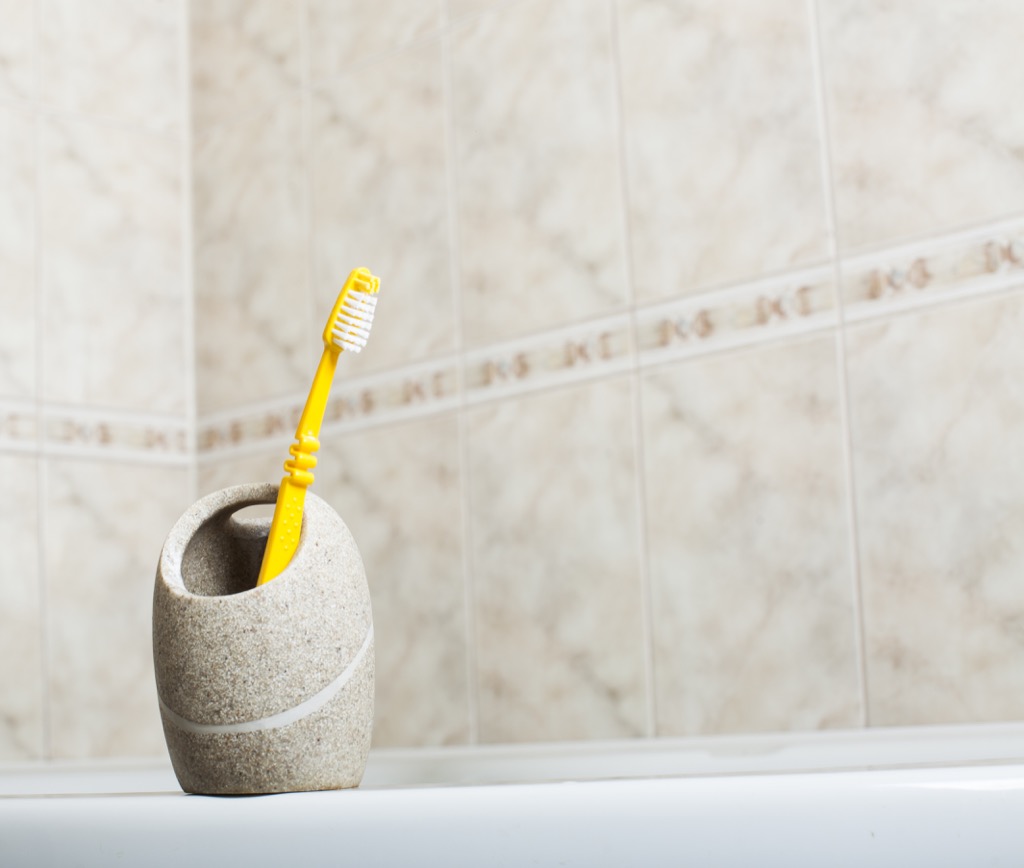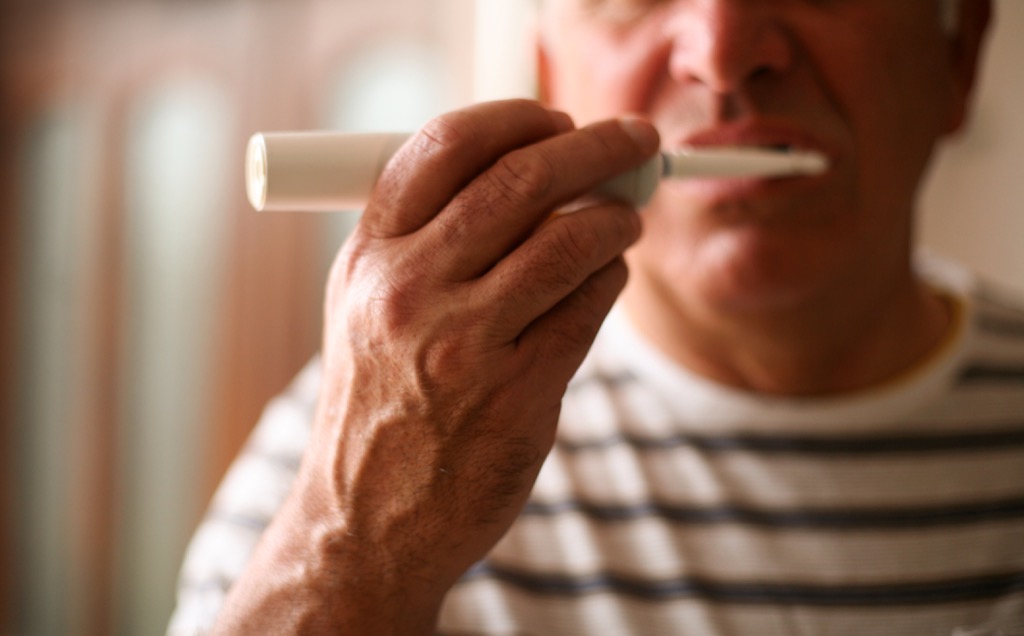Dentist Poonam Jain, BDS, told Best Life she recommends making the change every six to eight weeks or so. Jain adds that those who exert greater pressure while brushing should consider swapping out their toothbrush even more frequently. And for how long you should go between full body cleanings, find out How Often You Should Really Be Showering, Doctors Sayae0fcc31ae342fd3a1346ebb1f342fcb Once your toothbrush’s bristles begin to fray, you need to replace it, even if it’s sooner than six weeks. When the bristles start to fray, it “can lead to increased trauma to the gum tissues and reduced efficacy when brushing,” says co-founder of Spotlight Oral Care Vanessa Creaven, DDS. “The nylon bristles on our brushes are designed to remove the plaque from our teeth and from under our gums. They also polish the enamel of our teeth. Over time, these bristles become curved at the edges, which makes them less effective,” explains Jain. And for another change you need to make often, check out How Often You Should Really Be Changing Your Underwear. The Centers for Disease Control and Prevention (CDC) says you should be changing your toothbrush at least every three to four months, although there are exceptions. However, the dentists Best Life spoke with suggested swapping out an old toothbrush after three months tops to stay on the safe side. Want more up-to-date tips on your health, hygiene, and more? Sign up for our daily newsletter. If you don’t change your toothbrush frequently enough, you could be putting yourself at risk. Toothbrushes past their expiration date “can harbor bacteria, which can lead to infection, and since the bristles aren’t as effective, it can lead to an influx of plaque buildup, which results in tooth decay and gum disease,” says Flora Stay, DDS. The cause of these diseases and infections is “the residue left at the base of the brush head, which may harbor bacterial or fungal growth,” says Jain. To keep your mouth healthy and infection-free, be sure to change your toothbrush at least every three months—if not more frequently. For more on this and other bad habits, check out The Things You’re Doing That Would Horrify Your Dentist. In addition to looking out for frayed bristles, another exception to the three-month toothbrush-switching rule comes in if you’re sick. If “you recently have had a cold or respiratory infection … you should replace it immediately,” says Stay. And now that you’ve got the brushing down, read up on What Happens to Your Body When You Don’t Floss Your Teeth.




